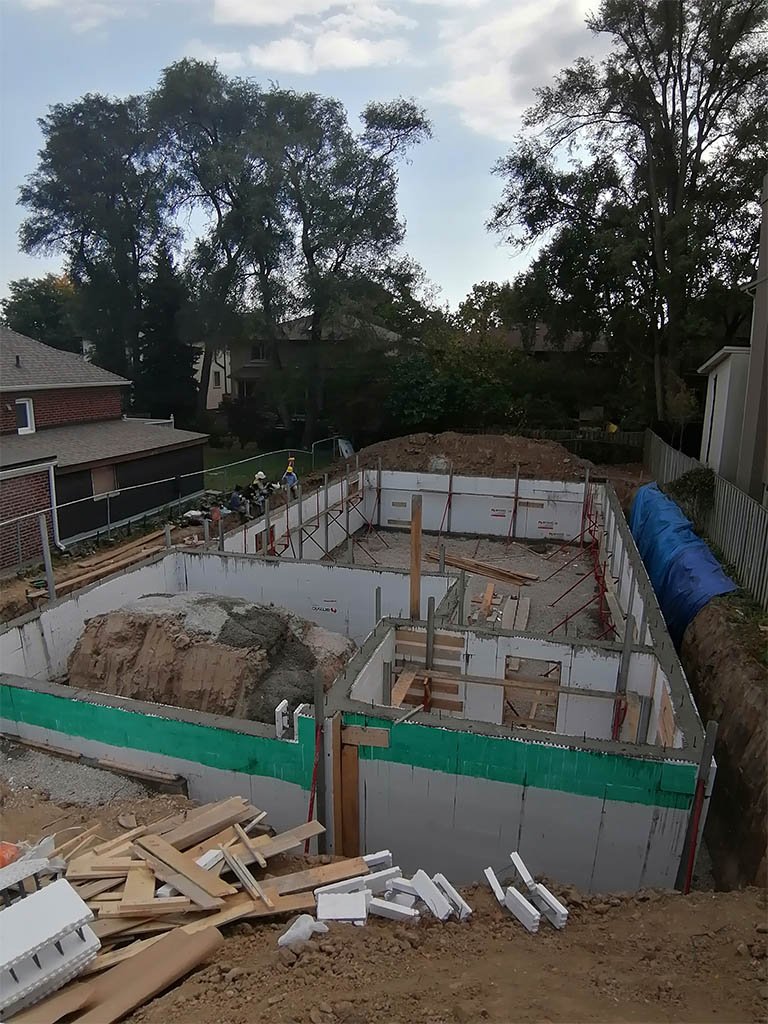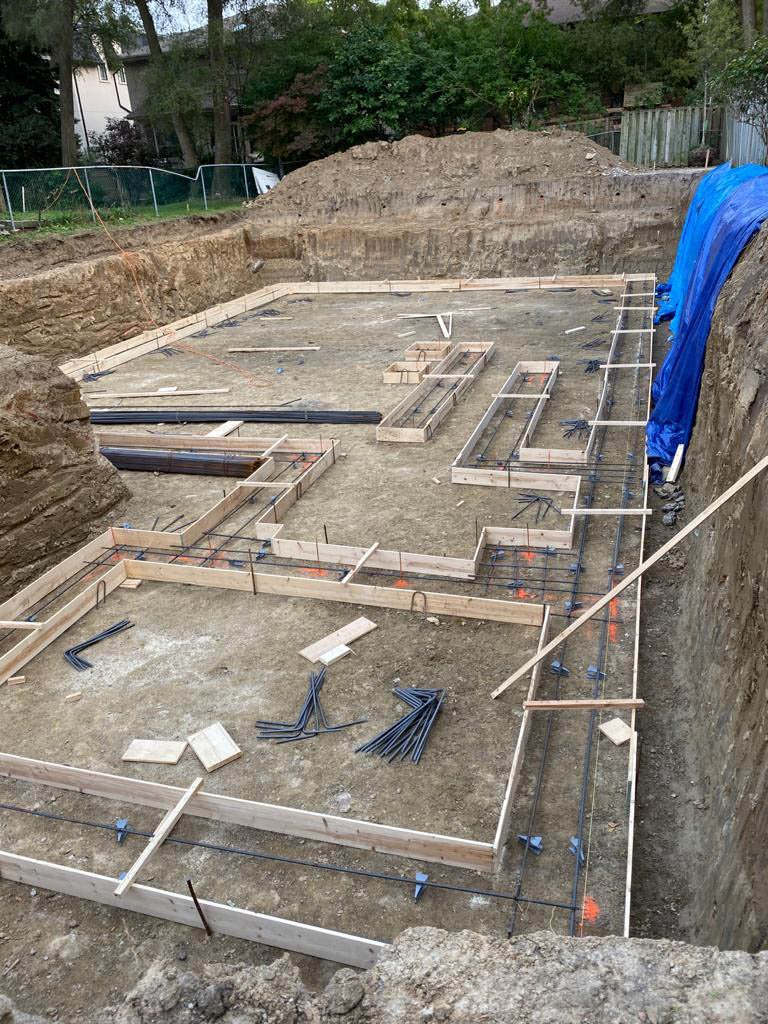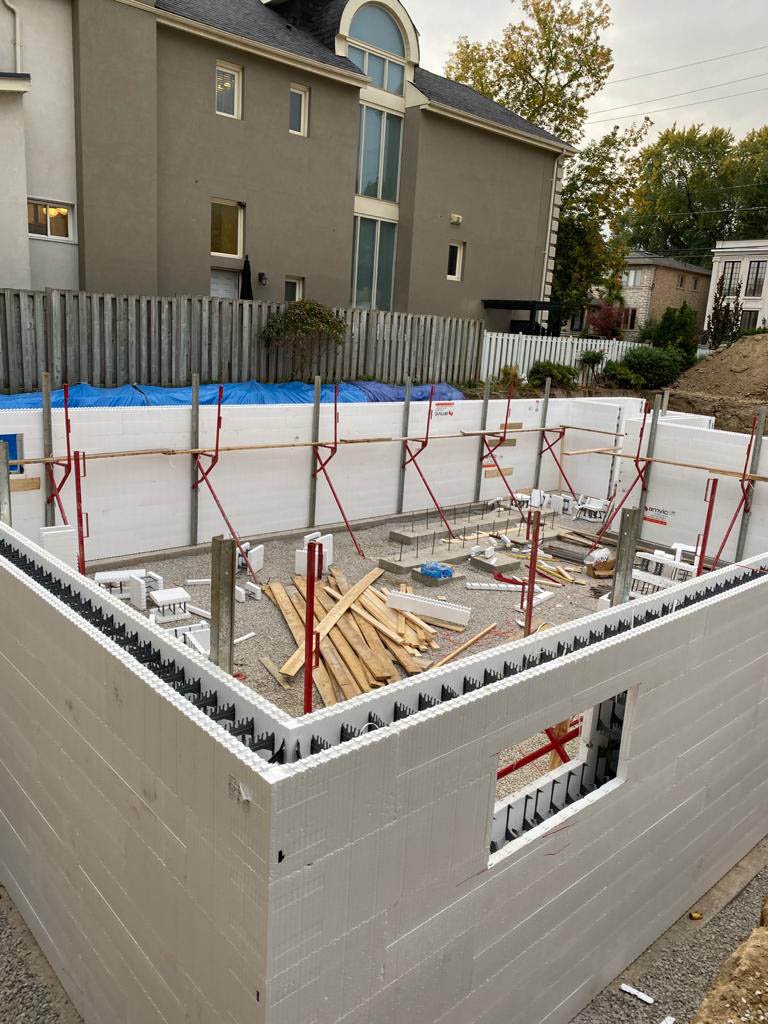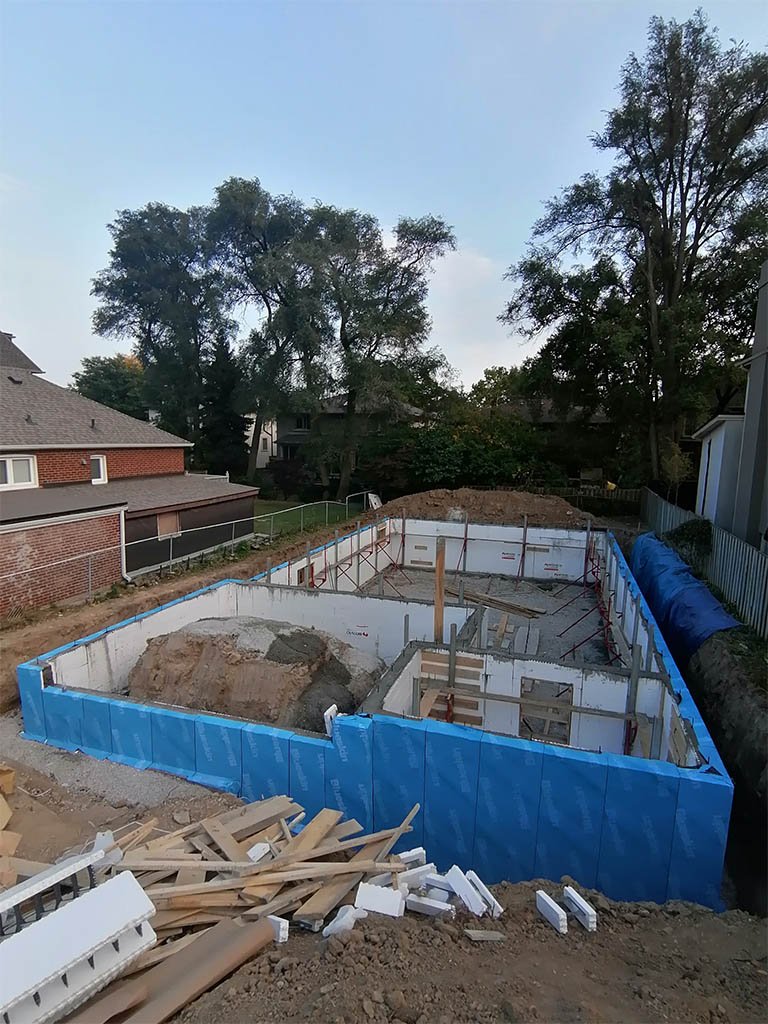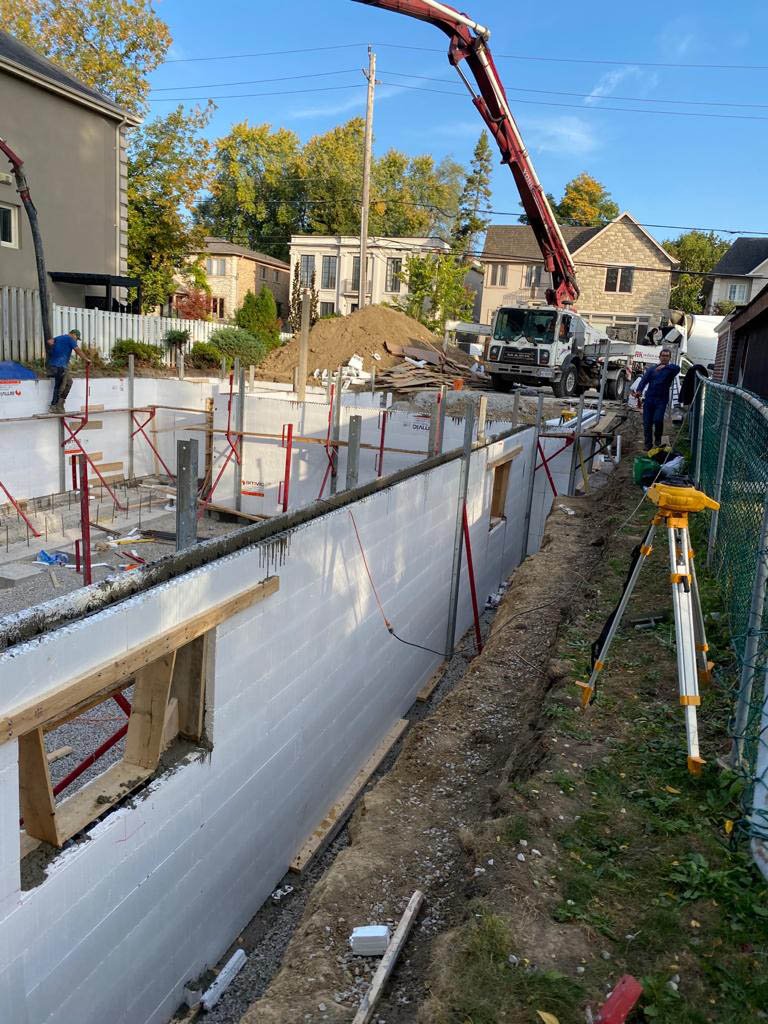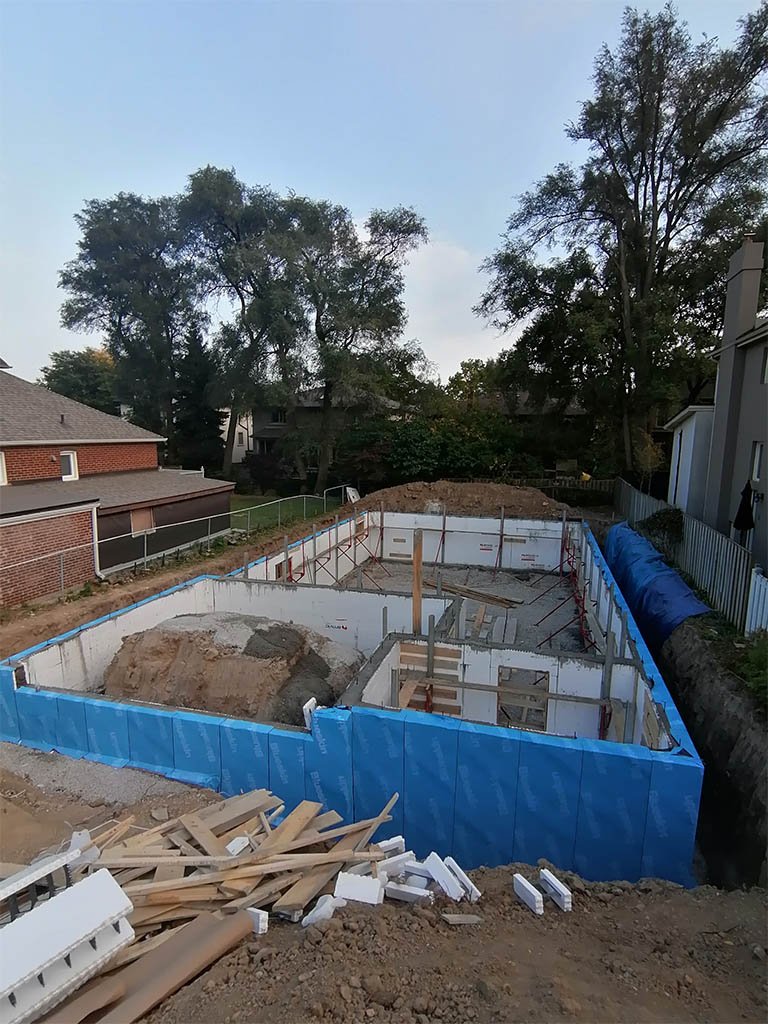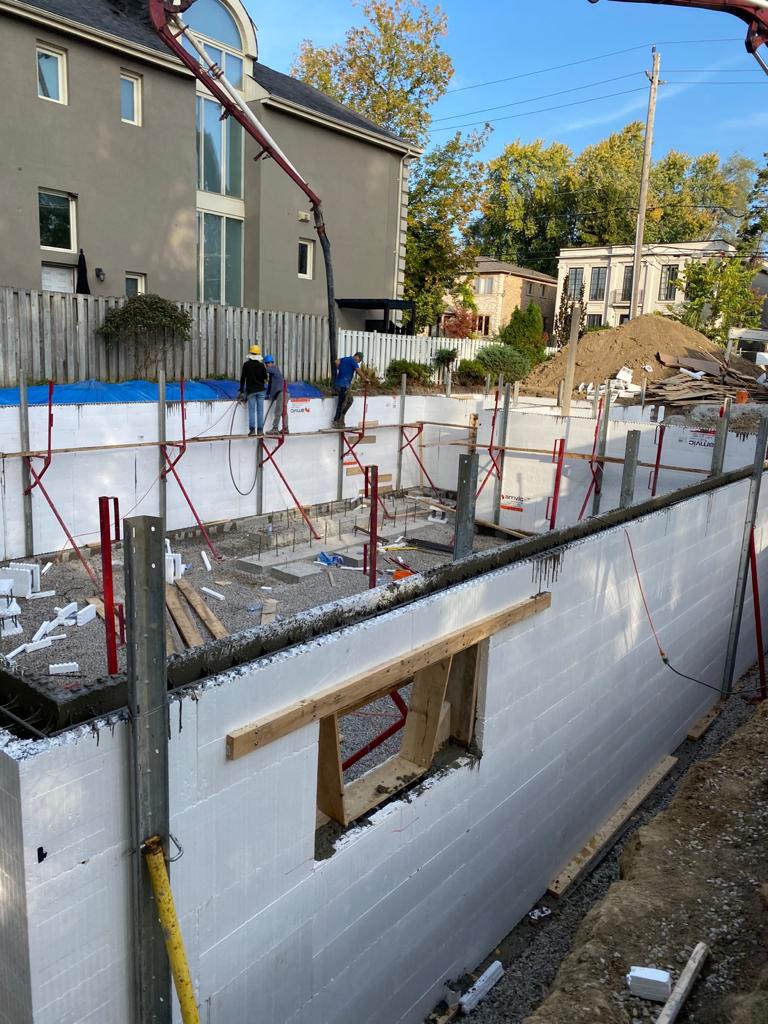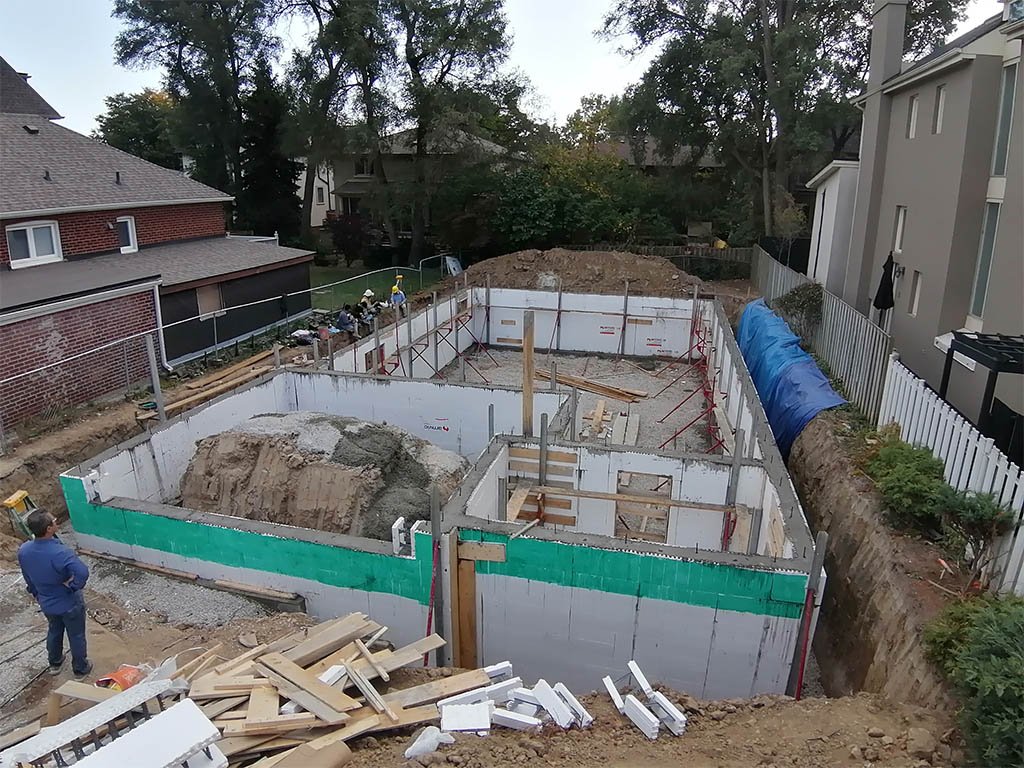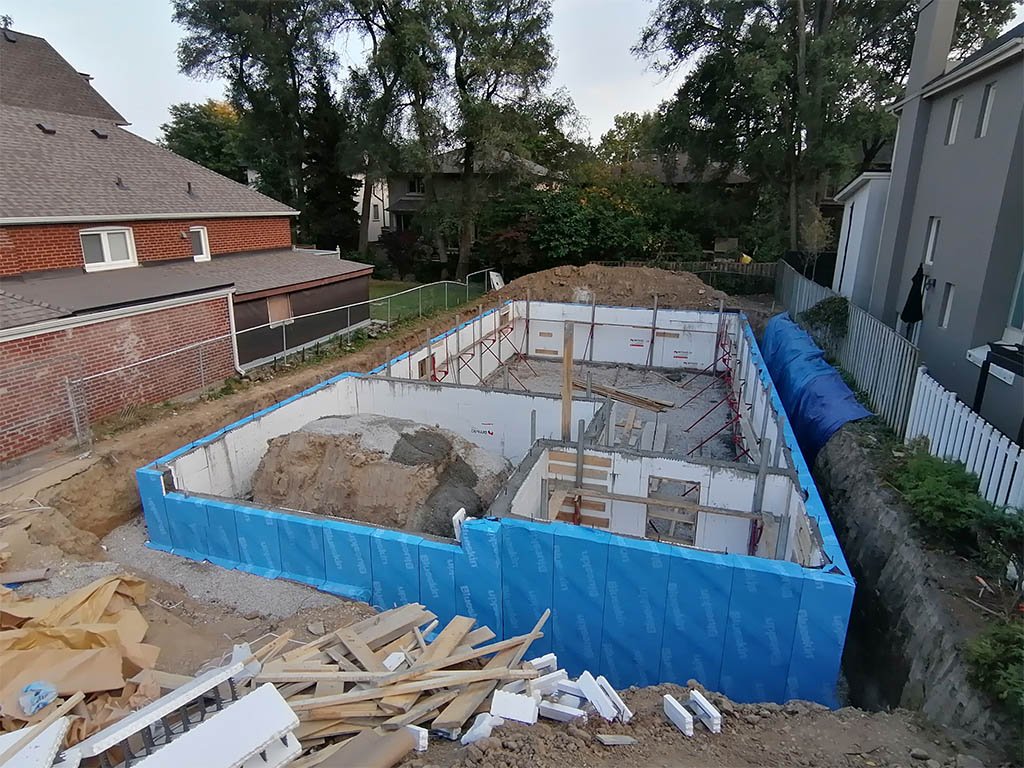197 Carmichael Ave
197 Carmichael Ave
Description :
ICF stands for Insulated Concrete Forms, which are a type of construction method used to build
structures. In this method, hollow foam blocks or panels are used as formwork, which are then filled
with concrete to create the walls of the building.
The process of constructing an ICF building involves several steps. First, the foundation is prepared and
leveled. Then, the foam blocks or panels are assembled and secured together to form the desired shape
of the walls. Reinforcing steel bars are placed inside the forms to provide structural strength.
Once the forms are in place, concrete is poured into them, filling up the entire wall cavity. The concrete
then cures and hardens, creating a solid and durable structure. After the concrete has set, any excess
foam is trimmed off, and finishes such as plaster or siding can be applied to the exterior.
There are several advantages to using ICF construction for buildings. Firstly, ICF structures offer excellent
insulation properties due to the foam insulation layer within the walls. This helps in reducing energy
consumption for heating and cooling purposes.
Secondly, ICF buildings have superior soundproofing capabilities compared to traditional construction
methods. The foam insulation acts as a barrier against noise transmission from outside sources.
Additionally, ICF structures are highly resistant to fire and extreme weather conditions such as hurricanes
or earthquakes. The combination of concrete and foam insulation provides a strong and durable building
envelope that can withstand these forces.
Furthermore, ICF construction is known for its ease of installation and versatility in design. The foam
blocks or panels can be easily cut or shaped according to specific architectural requirements.
Lastly, ICF buildings have a longer lifespan compared to traditional construction methods. The use of
durable materials like concrete ensures that these structures can withstand wear and tear over time.
In conclusion, ICF construction offers numerous benefits including energy efficiency, soundproofing
capabilities, resistance to fire and extreme weather conditions, ease of installation, versatility in design,
and long-term durability. These advantages make it an attractive option for constructing various types of
buildings.
